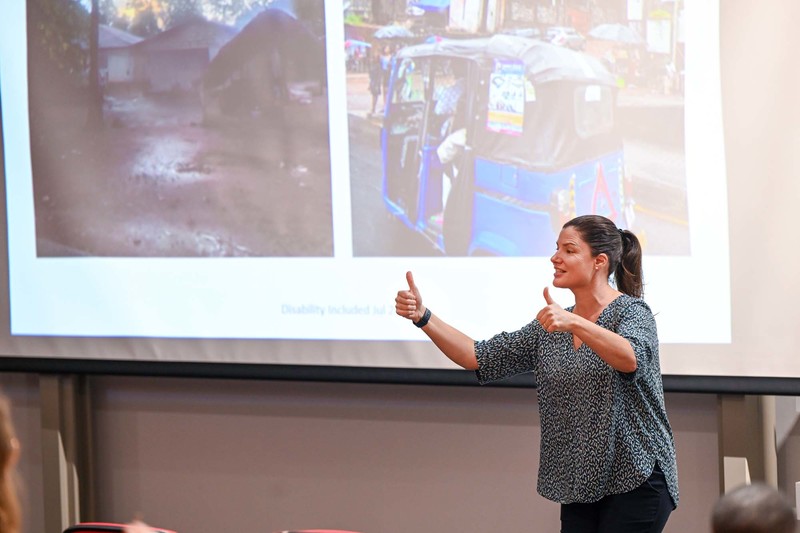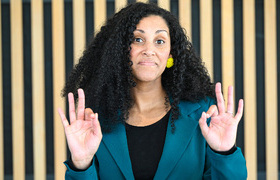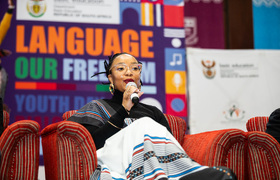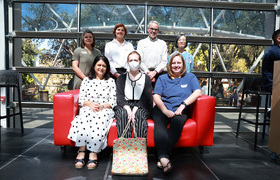Advocacy for accessible classrooms
17 July 2025 | Story Kamva Somdyala. Photo Lerato Maduna. Read time 3 min.
Newly minted educators listened intently as inclusion specialist Dr Emma McKinney spoke about learning disabilities in the classroom. She delivered a two-hour presentation at the University of Cape Town’s (UCT) Newly Qualified Teachers (NQT) Project Winter School on 15 July.
Dr McKinney, a UCT alumnus and owner of Disability Included, used the time to introduce attendees to “supportive measures of learning”. She advanced examples of “reasonable accommodation” and appropriate terminology when in the presence of a person with a disability. It turned interactive rapidly as the audience participated in some introductory Sign Language.
The NQT Project is an initiative of UCT’s School of Education and various partners and provides essential support for young teachers who have entered the classroom for the first time. The project focuses on developing their professional resilience and provides them with the academic and psychosocial support they need to navigate their first year in the field. It is scheduled to end on 17 July.
There was a brief conversation about being cognisant of congenital and acquired disability, as well as the visible and invisible and what impact those have on a disability being constant (for example, an amputee), and on whether it fluctuates (epilepsy). “Reasonable accommodation is about making the school environment more accessible by removing physical barriers, devising plans for workstation modifications, including adjustments to work schedules and assessments,” McKinney said.
Once you overcome that part, “it is appropriate to put the person first in terminology”. This was followed by time spent on words to avoid when referring to or speaking with a person with a disability. One of the examples used on the day was visual disabilities.
‘When in doubt, ask’
“Do not assume that they see nothing. It is important to identify yourself and others when meeting in a room; cue handshakes verbally, be descriptive in giving directions if needed and do not shout or exaggerate your words,” McKinney explained. The advice is to always be informative about changes to environment, offer assistance when needed and, most importantly, “guide dogs in a harness are at work, so do not touch or pat the dog”.
“In seeking accommodative ways, there is also the risk of overcompensating and switching to a hero-like status. Don’t do that,” she emphasised. What stays a constant, McKinney advised, is to never assume that a person with a disability cannot do something. “Don’t feel sorry and do not pity them. Involve children with disabilities in your classroom in decision-making and, when in doubt, ask.”
Other themes of the workshop include handling large classes, teaching learners to make connections through reading, artificial intelligence (AI) for teachers, as well as developing instructional leadership skills.
 This work is licensed under a Creative Commons Attribution-NoDerivatives 4.0 International License.
This work is licensed under a Creative Commons Attribution-NoDerivatives 4.0 International License.
Please view the republishing articles page for more information.

















